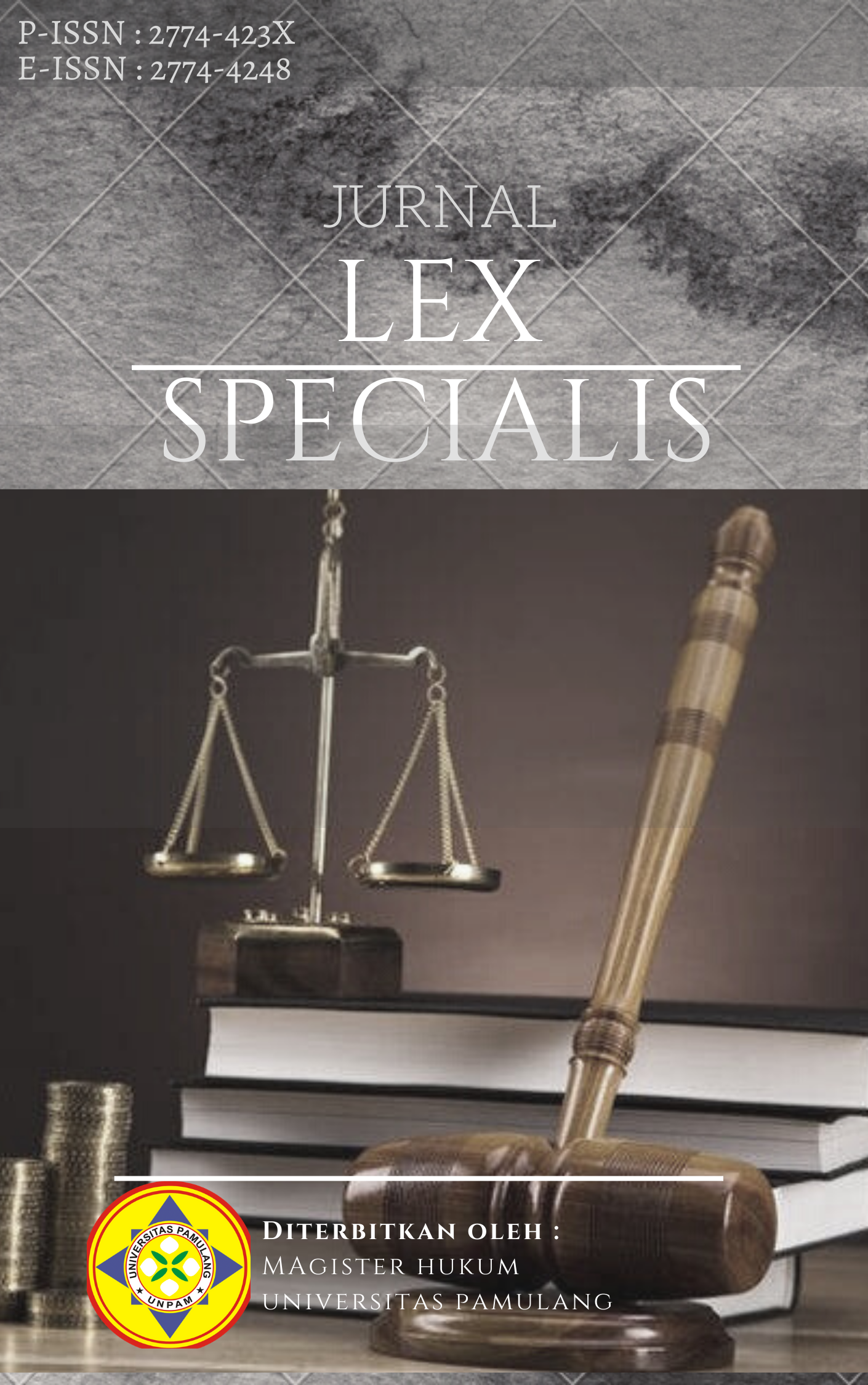Tinjauan Yuridis Akibat Penjualan Tanah Harta Bersama yang Dilakukan Secara Melawan Hukum (Kajian Putusan Nomor 630 K/PDT/2023)
Keywords:
Perbuatan Melawan Hukum, Harta Bersama, Jual Beli TanahAbstract
A marriage in Indonesia is something that is considered very, very sacred, which in this period certainly causes various consequences. Along with this period, it is not uncommon for a social conflict to occur which becomes a community disease at the time of the quarrel between the two, namely divorce, which will certainly spread to other problems such as the issue of property and other assets obtained during the marriage. Article 36 Paragraph (1) of Law Number 1 of 1974 concerning Marriage provides that the husband or wife can act with the consent of both parties. However, in the community there are still husbands or wives who sell joint property unilaterally without mutual agreement. This paper examines Decision Number 630 K/PDT/2023 dated March 7, 2024. The purpose of this study is to determine the status of the sale of joint property after divorce and to determine the legal consequences of the sale of joint property that is carried out unlawfully. This research uses a normative-juridical method with a statutory approach, namely by examining laws, books, and various expert opinions. So that the results of this study reveal that the property between husband and wife has been regulated and applied in Article 119 of the Civil Code (KUH Perdata) which explains that starting from the validity of a marriage, the unanimous property union applies as long as there is no other rule stating and regulating the property of those bound by marriage made before the marriage took place.
References
Rosdinar Sembiring, Hukum Keluarga: Harta-Harta Benda dalam Perkawinan, (Depok: Raja Grafindo Persada, 2016), hal. 83.
Muhammad Djumhana, Hukum Ekonomi Sosial Indonesia, (Bandung: PT Citra Aditya Bakti, 1994), hal. 27.
Rachmat Setiawan, Tinjauan Elementer Perbuatan Melanggar Hukum, (Bandung: Alumni, 1982), hal. 7.
Salim H.S., Pengantar Hukum Perdata Tertulis, (Jakarta: Sinar Grafika, 2006), hal. 170.
Ahmad Rofiq, Hukum Islam Di Indonesia, (Jakarta, Raja Grafindo Persada, 2003), hal. 200.
Soedharyo Soimin, Status Hak dan Pembebasan Tanah, (Jakarta: Sinar Grafika, 2004), hal. 86.
Subekti, Hukum Perjanjian, Cetakan Keenam, (Jakarta: Intermasa, 1976), hal. 17.
Hasaziduhu Moho, “Penegakan Hukum di Indonesia Menurut Aspek, Kepastian Hukum, Keadilan dan Kemanfaatan”, Jurnal Warta, Edisi: 59, Vol. 13, No. 1, (Januari, 2019), hal. 3.
M. Yahya Harahap, Kedudukan Kewenangan dan Acara Peradilan Agama, Undang- Undang No. 7 Tahun 1989, (Jakarta: Sinar Grafika, 2007, Cet. 4), hal. 268.
R. Tony Prayogo, “Penerapan Asas Kepastian Hukum dalam Peraturan Mahkamah Agung Nomor 1 Tahun 2011 Tentang Hak Uji Materil dan dalam Peraturan Mahkamah Konstitusi Nomor 06/PMK/2005 Tentang Pedoman Beracara dalam Pengujian Undang-Undang”, hal.194.


